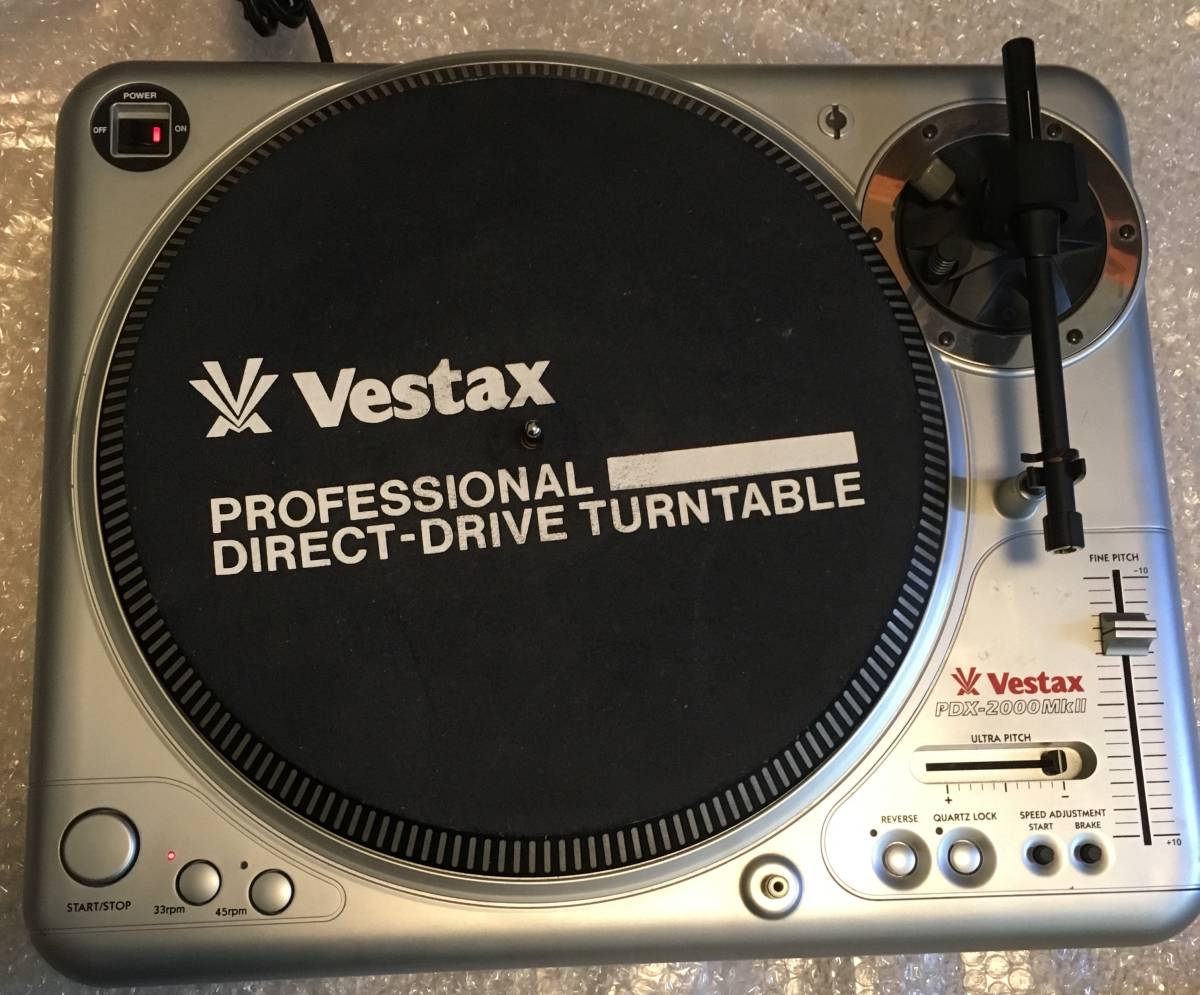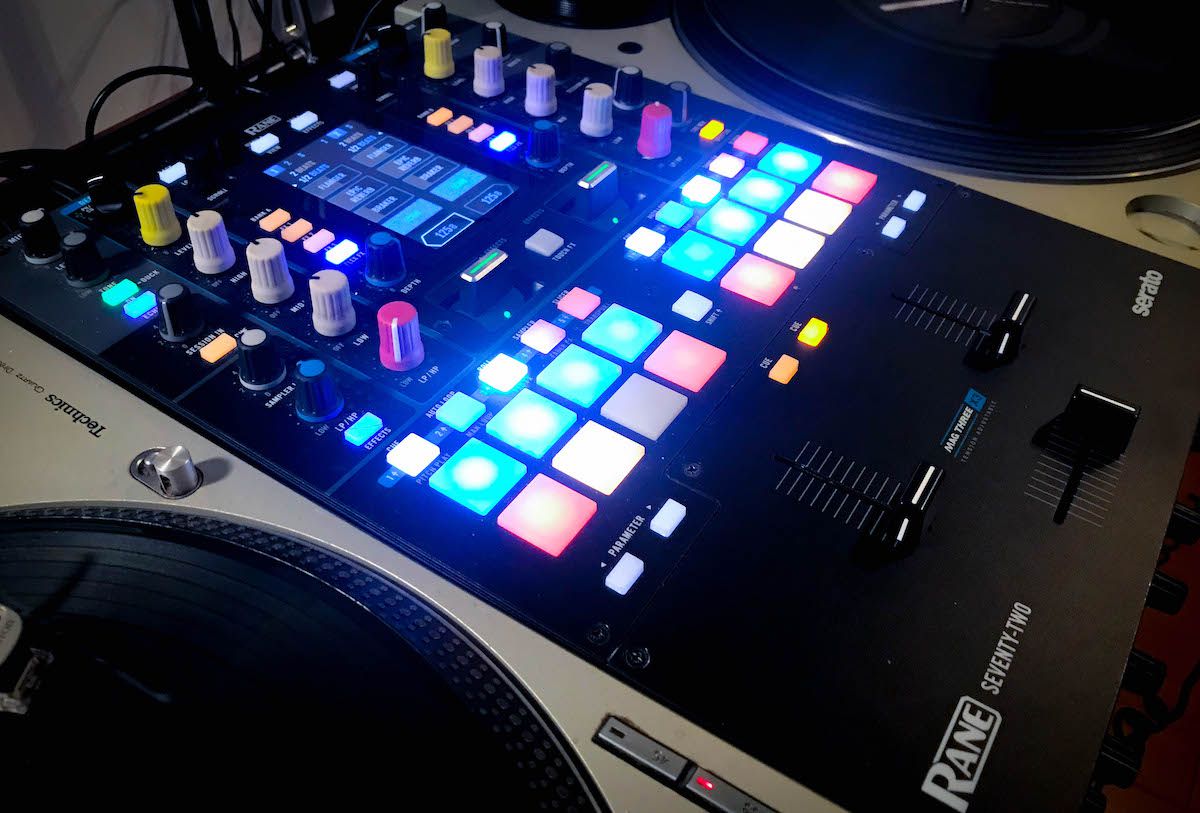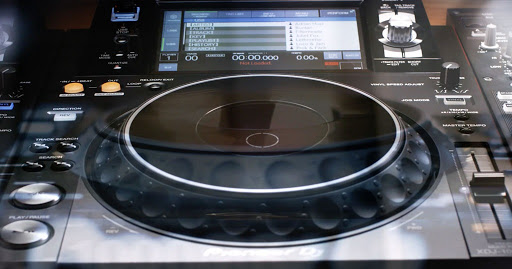Radical changes in performance techniques often demand radical changes in equipment design. For example, the electric guitar remained relatively unchanged from its introduction in the ’50s until the late ’70s, when Eddie Van Halen came along with his flamboyant whammy bar dives, which influenced the creation of the Floyd Rose tremolo system. During the ’90s, turntablists pushed scratching techniques to new heights, and Vestax recently responded by developing the ASTS antiskipping tonearm system, whose exceptionally stable tracking is a significant improvement over the capabilities of the traditional S-shaped tonearm design.
What We'll Cover
Now Vestax has introduced the PDX-2000 turntable, which offers several major improvements over the beloved Technics SL-1200MK2. The most significant distinction is the PDX-2000’s incredibly powerful motor: it provides the fastest startup time (less than half a second to reach full speed from a complete stop) of any turntable on the market. Add to this an extremely solid platter, versatile Start and Brake controls, flexible pitch controllers (Fine and Ultra), and Reverse and Quartz Lock controls, and you have perhaps the most responsive turntable ever produced.
LOCKDOWN
Anyone accustomed to an SL-1200MK2 will immediately notice the PDX-2000’s superior performance. The motor, platter, and tonearm really lock on to a record, allowing extremely precise control. There’s none of the side-to-side tonearm movement or back-and-forth platter rocking that make most turntables somewhat sensitive to radical record manipulation. Perhaps the best indicator of the PDX-2000’s responsiveness is its Reverse control. When you engage this button, the record starts spinning backward immediately, and with very little practice you can play measures or even single beats backward and forward in perfect tempo. Even with the platter changing direction, the tonearm remains locked in place and the needle won’t skip out of the groove. In fact, it takes an extremely heavy hand to cause the needle to skip out of the groove, even when you’re scratching vigorously.
The Start-Stop button offers similar responsiveness, starting and stopping the platter almost instantly. You can change the start and stop times with the rotary Start and Brake controls, which let you dial in slower times over about a 2-second range. The Power button is located within easy reach on the rear of the top surface, in case you want an even slower stop time.
NO SPEED LIMIT
The PDX-2000 features separate 33 and 45 rpm controls, but unlike some turntables it doesn’t allow you to engage both buttons at once to provide 78 rpm. However, the turntable’s Ultra Pitch fader makes up for this limitation by allowing users adjust the rotation speed ±50 percent. The fader works in conjunction with the traditional Fine Pitch fader, which provides control over a ±10 percent range, giving a total of ±60 percent pitch adjustment. This means you can slow records down well below 16 rpm or speed them up much faster than 78 rpm to match any desired tempo. The Fine Pitch control’s throw is 100 mm long, the same as that of the corresponding control on the SL-1200, and has a smooth feel with just enough resistance to provide stability once you’ve locked in the tempo you want.
Vestax designed the PDX-2000 to be noticed. It has a shiny silver body made of molded plastic with rounded corners, and a ridged zigzag surface surrounds the turntable’s bottom edge. But there’s more to this design than just good looks. The Reverse, Quartz Lock, Start, Brake, and Ultra Pitch controls are recessed underneath the top surface, where they’re easy to reach but sufficiently out of the way to avoid accidental engagement. The body also resists feedback well, so you won’t hear any loud booming when you tap it. The turntable’s footprint is also slightly smaller than an SL-1200’s — an added bonus if you’re particularly tight on desktop space.
The PDX-2000’s design is not a complete departure from the SL-1200, however. Its controls are arranged in the same standard manner as that unit, the turntable has a similar pop-up cueing light, and the tonearm offers the usual height and tracking weight adjustments. One small but welcome improvement is the inclusion of RCA output jacks instead of hardwired output cables. It would be nice if Vestax had included the pitch-bend joystick found on its more expensive PDX-d3 model, but the company probably left out this feature to keep the PDX-2000’s price below the SL-1200’s. The device also lacks the Key Adjust feature and digital outputs found on the Denon DP-DJ151. With the addition of these three features, the PDX-2000 would be the all-time ultimate turntable. How about an MK2 version, Vestax?
BEAUTY OF THE BEAST
Despite a few similarities, the PDX-2000 is an entirely different animal from the SL-1200. Although the Vestax turntable’s operation feels different from the Technics unit’s, DJs should have no problem working with a pair of PDX-2000 decks after spending a few minutes getting used to the improved response. In fact, it’s hard to imagine ever wanting to go back to a Technics after trying out the PDX-2000. Because it’s unlikely that most clubs and events will be replacing their warhorse Technics decks just yet, DJs and turntablists who rely on the Vestax’s unique features and rock-solid stability will need to take their beloved PDX-2000 decks every time they play out. But if you really want to stand out from the pack, it’s worth the extra effort.
PRODUCT SUMMARY VESTAX PDX-2000
Sale Price: $499.95
FEATURES: Incredibly strong and responsive motor. Stable tonearm. Affordable price. Versatile Ultra Pitch and Fine Pitch controls.
The responses below are not provided, commissioned, reviewed, approved, or otherwise endorsed by any financial entity or advertiser. It is not the advertiser’s responsibility to ensure all posts and/or questions are answered.






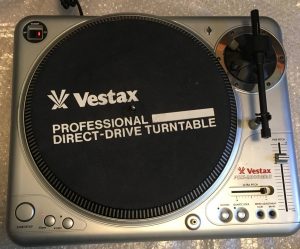


![Top DJ software for Live Performances and Gigs [2023]](/assets/images/e3802ce366623687d91ac7df2186a9ea.png)
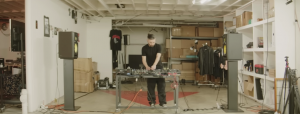
![Top DJ Software and Music Streaming Alternatives to Spotify [2023]](/assets/images/fc2e59c678a10fda46c5367c3f077ed4.png)







